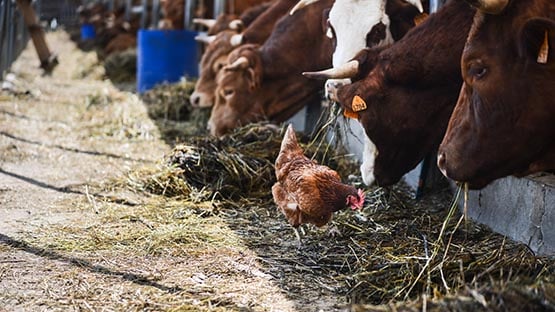
“Virginia detects various disorders through the newborn screening program, but adding SCID creates the opportunity to save or drastically improve the lives of even more babies each year,” Governor McAuliffe said. “Prospective parents should feel confident that the Commonwealth is looking out for our tiniest residents. “
Virginia’s newborn screening program, which was first mandated in 1966 and is required by law for all babies born in the Commonwealth, is a partnership between the Department of General Services’ Division of Consolidated Laboratory Services (DCLS) and the Virginia Department of Health (VDH). Five drops of blood taken by pricking the baby’s heel are used to screen for 29 disorders that range from the well-known Cystic Fibrosis, an inherited disorder affecting the lungs and digestive system, to the relatively obscure metabolic disorder known as Maple Syrup Urine Disease, which prevents a baby’s body from breaking down parts of food protein. Babies with these disorders often look healthy at birth, but failure to diagnose them early can lead to severe sickness, physical or mentally disabilities, or death.
Approximately 100,000 babies are born each year in Virginia, so it is imperative to ensure they have a fighting chance at a healthy life. New regulations took effect earlier this month and DCLS immediately began screening newborns for SCID, joining 30 states across the nation that have added the disease to their newborn screening programs. Annually, DCLS receives 120,000 samples and performs more than 4 million newborn screening tests. Most results are released within 24 hours. VDH newborn screening staff follows up on abnormal test results for more than 20,000 infants each year, making sure the babies are referred to physician specialists to receive the care they need.
SCID is a primary immunodeficiency disease that renders the body unable to fight off infections. It became known as “Bubble Boy Disease” after the highly publicized case of David Vetter, a Texas boy born in 1971 with a form of SCID who lived for 12 years in a plastic, sterile bubble before passing away. Treatment often requires a bone marrow transplant from a healthy donor, and the success of the transplantation decreases with delayed diagnosis. Undiagnosed cases are fatal, usually within the first two years of life.
“Virginia’s newborn screening program saves babies’ lives and spares families the devastating effects of these rare diseases,” said Richard F. Sliwoski, P.E., Director of the Department of General Services. “Scientific and medical advances have allowed this program to grow from screening for one disorder back in 1966 to 29 today, and it will continue to evolve and grow so that we are giving all babies the best possible start in life.”
State Health Commissioner Marissa J. Levine, MD, MPH, FAAFP, added: “This very important public health policy allows us to find diseases that if not identified and managed early, can be fatal. This early identification and management means more thriving babies in Virginia, and a stronger start for more children is a critical building block in our goal of Virginia becoming the healthiest state in the nation.”
“The addition of SCID testing highlights DCLS’ commitment to using the most advanced technologies to screen for life-threatening disorders and save Virginia’s babies,” said Denise Toney, Ph.D., HCLD, Director of DCLS.
With the addition of SCID, Virginia now screens for 31 of the 32 disorders on the nationally Recommended Uniform Screening Panel (RUSP). DCLS is responsible for the testing of dried blood spot samples for 29 disorders. Critical Congenital Heart Defects and Hearing screening are performed in the hospitals prior to a baby’s discharge. Pompe Disease, the 32nd disorder, recently was approved by the U.S. Secretary of Health and Human Services for addition to the RUSP and will be evaluated by the Virginia newborn screening program for inclusion.










